K. Albanian official "engages in special provocation"
Krstimir Pantić says Atifete Jahjaga "never traveled to northern Kosovo for talks with representatives of Serbian institutions there".
Friday, 12.10.2012.
18:50

KOSOVSKA MITROVICA Krstimir Pantic says Atifete Jahjaga "never traveled to northern Kosovo for talks with representatives of Serbian institutions there". Pantic is mayor of the northern, Serb part of the ethnically divided town of Kosovska Mitrovica. K. Albanian official "engages in special provocation" He was reacting to a statement made earlier today by Ramush Tahiri, an adviser to Jahjaga, who serves as Kosovo's president. Tahiri claimed that she "spoke on several occasions with the citizens" in this part of Kosovo. The north is a small area, Pantic told Tanjug news agency on Friday, and had Jahjaga spent any time there, "it would have been impossible to hide this among the Serb population". "I am not ruling out the possibility that she met, in Pristina, with some of those who have NGOs or work in Albanian institutions. I can say with full responsibility that no representative of the local institutions in the north talked to her, nor will they, without our government knowing about it and agreeing to such a thing," the mayor explained. Radmila Trajkovic, a Serb member of the Kosovo assembly in Pristina, also commented on the report to say that she did not know whether Jahjaga had really crossed the Ibar and talked to the citizens there, and dubbed Tahiri's statements "a special provocation". "I think she herself is in a difficult position in the Kosovo parliament and that she is mostly busy with that," Trajkovic said of Jahjaga. Former official of the Ministry for Kosovo Oliver Ivanovic told Tanjug that he did not believe that Jahjaga had met with any citizen of northern Kosovo "who carried any weight": "If she did talk to some Serbs in the north, that cannot have any effect or be treated as conversation with representatives of Serbs." Tahiri made his statement for Radio Free Europe on Thursday, but was vague about the details, saying that the meetings took place on several occasions, and that he himself was present twice, without specifying where these encounters took place, other than he and Jahjaga "had crossed the Ibar River". The adviser also noted that the meetings did not involve "the structures or local institutions, but the citizens". Tahiri revealed for the Prague-based broadcaster, that "these talks will be continued in Pristina" - since the president has an obligation to talk to her citizens and listen to their demands. Adding that the meetings did not take place in northern Kosovska Mitrovica, "but a bit farther, I cannot say where exactly", Tahiri also noted that international officials in the area "know about it". The reason behind the secrecy, he revealed, were not security concerns: "It's because we do not wish to behave in a politicking manner, or to say it in plain Serbian - we do not wish to rat out on who we talk to." Tahiri also explained how the meetings went and summarized what was said: "Simply, we talk to the people, listen to their needs. People said this: 'Dear president, we wish for this to be Serbia, however we recognize Kosovo's institutions' - some said Albanian institutions - 'and we wish to live realistic lives. We wish to have ties both with Belgrade and Pristina'." he added that these citizens further told Jahjaga that they "respected her and were grateful for her visit", as they wished to "solve the problems, because they had been living there since always". According to Tahiri, he took part in one such meeting two months ago, while they continued "before and after that time", with the latest taking place in Pristina - "to where a delegation arrived". Before his statement about Jahjaga's alleged secretive crossings of the Ibar River, Tahiri was in the news when he said the Serb institutions in the north were "legitimate, rather than parallel". Serbs form a majority population in the area north of the river, and earlier this year, they voted overwhelmingly in a referendum to reject the authority of the government and institutions in Pristina. They also reject the ethnic Albanian unilateral declaration of independence made in early 2008, with local institutions functioning as part of the Serbian government system. B92 Tanjug RFE
K. Albanian official "engages in special provocation"
He was reacting to a statement made earlier today by Ramush Tahiri, an adviser to Jahjaga, who serves as Kosovo's president. Tahiri claimed that she "spoke on several occasions with the citizens" in this part of Kosovo.The north is a small area, Pantić told Tanjug news agency on Friday, and had Jahjaga spent any time there, "it would have been impossible to hide this among the Serb population".
"I am not ruling out the possibility that she met, in Priština, with some of those who have NGOs or work in Albanian institutions. I can say with full responsibility that no representative of the local institutions in the north talked to her, nor will they, without our government knowing about it and agreeing to such a thing," the mayor explained.
Radmila Trajković, a Serb member of the Kosovo assembly in Priština, also commented on the report to say that she did not know whether Jahjaga had really crossed the Ibar and talked to the citizens there, and dubbed Tahiri's statements "a special provocation".
"I think she herself is in a difficult position in the Kosovo parliament and that she is mostly busy with that," Trajković said of Jahjaga.
Former official of the Ministry for Kosovo Oliver Ivanović told Tanjug that he did not believe that Jahjaga had met with any citizen of northern Kosovo "who carried any weight":
"If she did talk to some Serbs in the north, that cannot have any effect or be treated as conversation with representatives of Serbs."
Tahiri made his statement for Radio Free Europe on Thursday, but was vague about the details, saying that the meetings took place on several occasions, and that he himself was present twice, without specifying where these encounters took place, other than he and Jahjaga "had crossed the Ibar River".
The adviser also noted that the meetings did not involve "the structures or local institutions, but the citizens".
Tahiri revealed for the Prague-based broadcaster, that "these talks will be continued in Priština" - since the president has an obligation to talk to her citizens and listen to their demands.
Adding that the meetings did not take place in northern Kosovska Mitrovica, "but a bit farther, I cannot say where exactly", Tahiri also noted that international officials in the area "know about it".
The reason behind the secrecy, he revealed, were not security concerns:
"It's because we do not wish to behave in a politicking manner, or to say it in plain Serbian - we do not wish to rat out on who we talk to."
Tahiri also explained how the meetings went and summarized what was said:
"Simply, we talk to the people, listen to their needs. People said this: 'Dear president, we wish for this to be Serbia, however we recognize Kosovo's institutions' - some said Albanian institutions - 'and we wish to live realistic lives. We wish to have ties both with Belgrade and Priština'."
he added that these citizens further told Jahjaga that they "respected her and were grateful for her visit", as they wished to "solve the problems, because they had been living there since always".
According to Tahiri, he took part in one such meeting two months ago, while they continued "before and after that time", with the latest taking place in Priština - "to where a delegation arrived".
Before his statement about Jahjaga's alleged secretive crossings of the Ibar River, Tahiri was in the news when he said the Serb institutions in the north were "legitimate, rather than parallel".
Serbs form a majority population in the area north of the river, and earlier this year, they voted overwhelmingly in a referendum to reject the authority of the government and institutions in Priština.
They also reject the ethnic Albanian unilateral declaration of independence made in early 2008, with local institutions functioning as part of the Serbian government system.















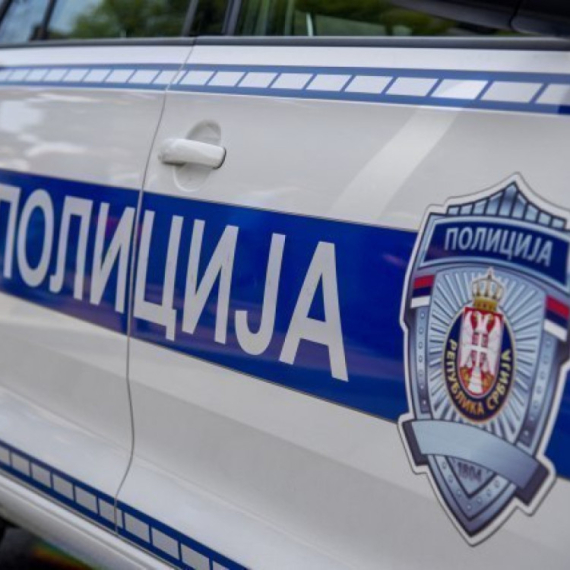

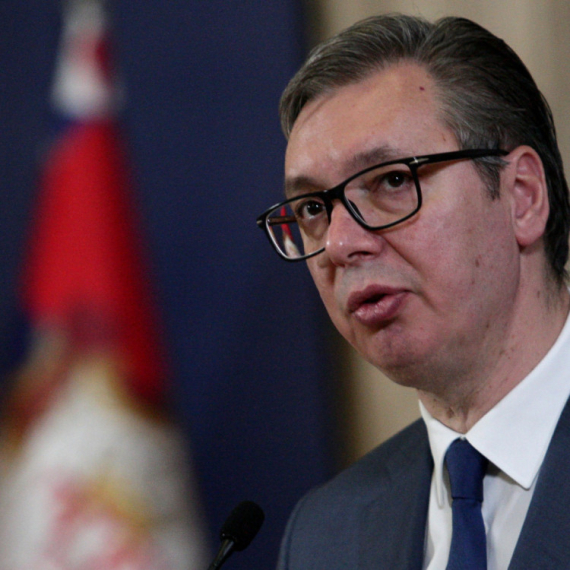
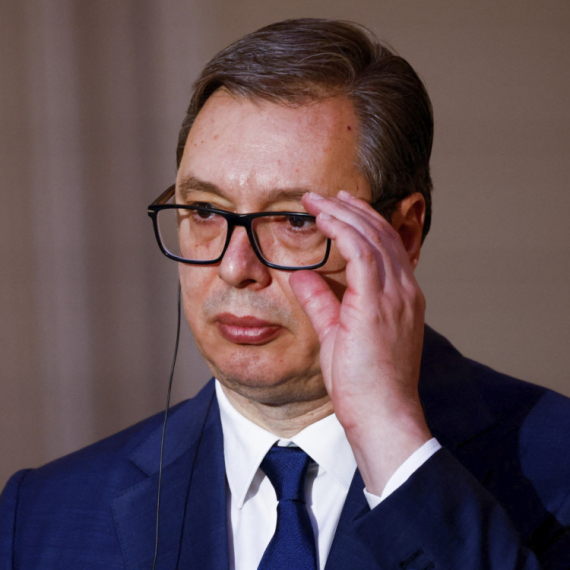
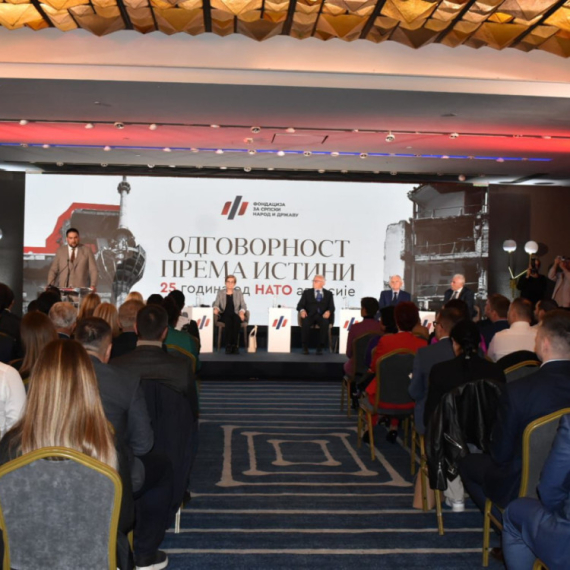




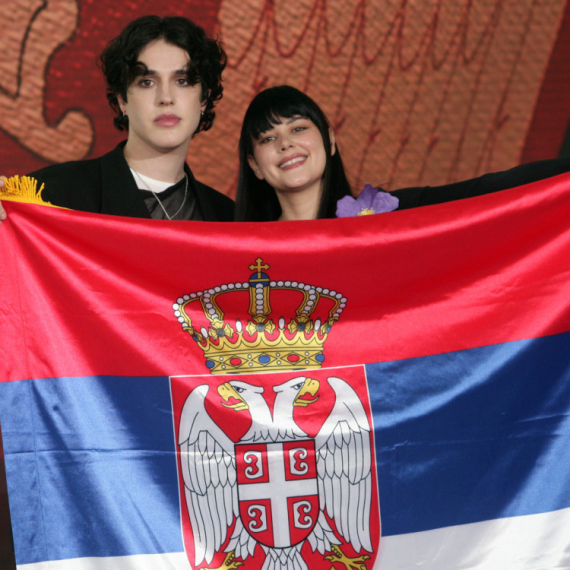































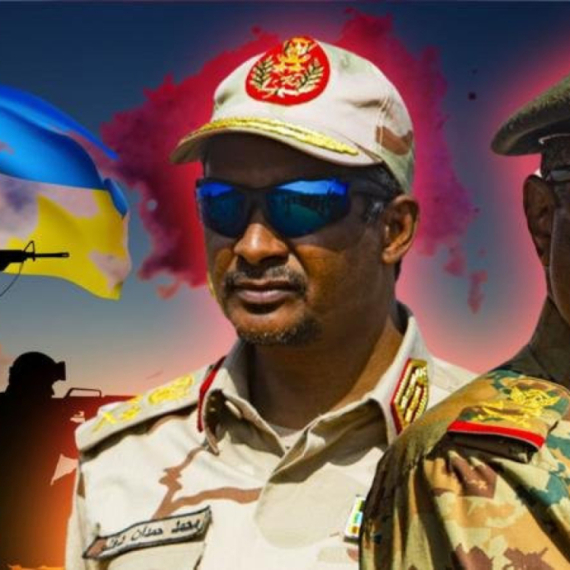

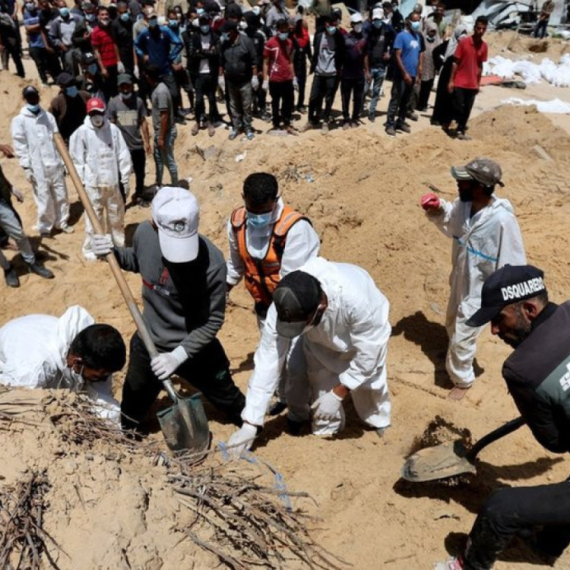

Komentari 5
Pogledaj komentare